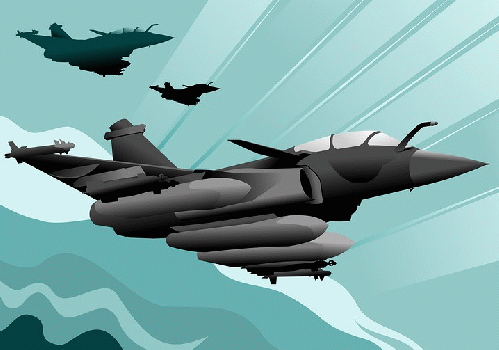A modern way to confront fear is to drink a big glass
of donkey semen, as contestants did recently on "Fear Factor,"
the NBC reality show. Please don't tell me donkey semen is a breakthrough
remedy soon to be marketed to fearful people the world over. I prefer to
believe the media are just making a buck off our battiness.
We certainly do need courage to awaken to the dangers
posed by environmental devastation and endless warfare. Where can we find the
fortitude to take charge of our destiny, in case donkey semen doesn't work?
Much is said and written about fear, yet seldom is it
traced to its irrational psychological core. To overcome this inner fear, we
have to see its existence in our psyche instead of denying it or trying to
justify it by imagining Armageddon or "seeing" evil intent in others. Deeper
insight makes us more conscious of our fear's irrationality.
It's easy to stoke our fears because we all have inner fears that have an infantile
basis. Toddlers can burst out crying when getting a haircut, seeing a costumed
character at the fair, even when meeting a neighbor's new puppy. Children can
also have fears of darkness, of falling, being dropped, chopped to pieces,
accosted by bogey-men, and flushed down the toilet. We can also recognize that
fear is an instinctive remnant of humankind's early history when primitive
conditions made the environment more immediately dangerous.
In any event, baby fears are perfectly understandable because
babies are so vulnerable. They're profoundly helpless, at the mercy of the
kindness of others. As well, their powers of reason are still unformed, so they
can easily feel menace or danger where none exists. As adults, of course, we no
longer fear being flushed down the toilet. But the fear itself remains in our
psyche as unresolved emotional memories. Despite our capacity for reason, this
inner fear, which can be part of our identity, is unconsciously transferred and
projected on to imagined dangers as easily as real dangers. Even common worry is a form of fear. Worry can
fester in our psyche, becoming more problematic when it intensifies into
anxiety, fear, and panic.
Fear makes us less clear-headed. Why is that?
Unconsciously, we're determined to justify our fear in order to cover up our
lingering resonance with the unresolved baby fears of childhood. Keep in mind
that unresolved emotional issues are harbored in our psyche, and that we're
compelled to experience whatever is unresolved, even when doing so is painful.
Much of our fear, emerging from within, is irrational--yet we're determined to
make the fear seem justified by external situations. This cover-up of the
source of our fear convinces us that the reasons or causes for our fear are
real. Now we need enemies to justify our inner fears and to cover up our
emotional resonance with those fears. The enemy is the defense: The more
menacing we make the enemy, the more effectively we deny our inner weakness,
our indulgence in our inner fears.
Of course, we often do face legitimate personal and
national threats to our wellbeing and safety. For instance, America's
national-security state apparatus began to develop rapidly after World War II,
following the worldwide fear aroused by the development of atomic weapons.
Danger exists, of course, yet our fears have compounded the problem, says
journalist David C. Unger in The
Emergency State: America's Pursuit of Absolute Security at All Costs (The
Penguin Press, New York, 2012). Although we have the world's most powerful
military, "we live in greater fear of external and internal dangers than before
World War II." America's self-perpetuating security establishment, Unger
writes, has been "stoking our fears" in order to win public acceptance of its
expanding powers--at a cost to democratic institutions and economic strength.
Handguns, too, can be used not just as a physical
defense but also as a psychological defense. The unconscious psychological
defense operates along these lines: "Who says I'm a fearful person emotionally
preoccupied with being harmed or violated! This gun proves that I know how to
take care of myself. No one is going to get the best of me!" America's ongoing
national state of emergency, along with our budget-busting military, is just a bigger
version of the handgun defense. Our militancy is, paradoxically, a sign of
weakness. The ever-expanding Pentagon budget is our very expensive and
self-defeating cover-up of inner fear. We shower the members of the armed
forces in thankful glory, in part because their bravery lets us off the hook
psychologically: We don't have to do the soul-searching that can overcome our
fear. This refusal to achieve inner progress means, however, that we remain
passive, unable to rein in our militancy, and unable to understand and practice
the power of sincere diplomacy, persistent negotiations, and heartfelt
expressions of goodwill.
Letting go of fear feels challenging because it's a big
component of how we know ourselves. Unconsciously, we're familiar with ourselves
through timidity, self-doubt, uncertainty, and passivity. Hence, our aggressiveness
and militancy, which can hide this part of us, seem like the only possible way
to express power. As a result, we're unable to express the power of engaged citizenship.
Instead, we feel childish entitlement and apathy, or the phony power that goes
with cynicism and chronic complaining.
With real power, our citizenship is more resolute. We
acquire our own sense of truth and don't depend on others to know what's true
for us. Our inner freedom is the cornerstone of world peace.





